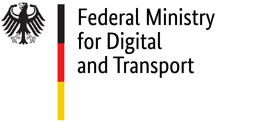Bundesamt für Seeschifffahrt und Hydrographie
Referat S12
Bernhard-Nocht-Straße 78
20359 Hamburg
Michael Neumann
Phone: +49 40 3190-71205
Mail: michael.neumann@bsh.de
Karsten Tapper
Phone: +49 40 3190-71204
Mail: karsten.tapper@bsh.de
Simone Wilde
Phone: +49 40 3190-71202
Fax: + 49 40 3190-5010
Mail: simone.wilde@bsh.de
BG Verkehr / Dienststelle Schiffssicherheit
Brandstwiete 1
20457 Hamburg
Phone: +49 40 361 37-0
Fax: +49 40 36137-204
Mail: schiffssicherheit@bg-verkehr.de

Alexander Al Weissi
Phone: +49 40 36137-218
Mobile: +49 171 50 57 036
Mail: alexander.alweissi@bg-verkehr.de
Berufsgenossenschaft Verkehrswirtschaft Post-Logistik Telekommunikation (BG Verkehr)
Geschäftsbereich Prävention
Ottenser Hauptstr. 54
22765 Hamburg
Phone: +49 40 3980 2752
Mail: seeschifffahrt@bg-verkehr.de
BG Verkehr / Dienststelle Schiffssicherheit
Seeärztlicher Dienst
Brandstwiete 1
20457 Hamburg
Phone: +49 40 361 37-365
Fax: +49 40 361 37-333
Mail: seeaerztlicher-dienst@bg-verkehr.de

Annelie Ewen
Phone: +49 40 36137-252
Fax: +49 40 36137-333
Mail: annelie.ewen@bg-verkehr.de
Approved courses
Courses for professional development as well as for issuance of Certificates of Competency and Certificates of Proficiency
According to the STCW Convention and in combination with the ISM Code, a continual professional development for certain duties on board is required of all seafarers. Some advanced courses are prerequisite for the issuance and the extension of validity of Certificates of Competency and Certificates of Proficiency. In these cases, the participation in approved courses is necessary.
A list of all approved courses will appear after you have clicked on the respective link:
- Occupational Health and Safety
(training programmes for maritime shipping by the BG Verkehr) - ARPA / ECDIS
(approved by the BSH) - German Maritime Law
legislation overview for the course "German maritime law for masters"
(approved by the BSH) - Passenger Ships and Ro/Ro-Ferries
(approved by the BSH) - Continued Competency for Nautical/Technical Service
(approved by the BSH) - Ship Security
(approved by the BSH) - Ships Subject to the IGF Code (approved by the BSH)
These are ships using gases or other low-flashpoint fuels. - Medical Refresher Courses
(approved by the BG Verkehr) - Ship Operation
(approved by the BSH) - Polar Ships(approval within the transitional period)
(approved by the BSH) - Ship Safety: initial training and refresher courses
(authorised by the Ship Safety Division of the BG Verkehr) - Maritime Radio
(approved by the BSH) - Tankers
(approved by the BSH)
Who needs to take which course?
The following information is meant as a first impression and does not apply to every individual case or special cases. In addition to the information about the right choice of training course, in some cases you can also find details about the requirements you have to fulfil. Further specifics are given on the application forms.
Generally, all seafarers holding a German navigational Certificate of Competency in accordance with Regulations II/1, II/2 or II/3 without restrictions regarding ARPA also fulfil the standards of the ARPA Basic Training.
- All other navigational officers and masters who want a Certificate of Competency without the relevant restrictions have to complete this course successfully.
- This course has to be completed successfully once only and does not have to be refreshed.
As part of the endorsement of recognition of foreign certificates of competency,
- EU-masters must prove their knowledge of German maritime law and the German language by paritcipating in an approved nine-day course of German maritime law.
- Officers at the managerial level must prove the participation in an approved one-day course of German maritime law. The managerial level comprises: Chief Mate, Chief Engineer Officer, Second Engineer Officer.
Here you can find:
- further information on the endorsement of recognition of foreign certificates as well as on the conditions for the endorsement of recognition
- a legislation overview for the course "German maritime law for masters"
Generally, all seafarers who acquired a German Certificate of Competency as Navigational Watchkeeping Officer (in accordance with Regulation II/1 of the Annex to the STCW Convention) after 1st of June 2006 also fulfil the standards of the ECDIS Basic Training.
- All other navigational officers and masters who want a Certificate of Competency without the relevant restrictions have to complete this course successfully.
- This course has to be completed once only and does not have to be refreshed.
Passenger ship safety training
Required for:
- Personnel providing direct service to passengers in passenger spaces on board passenger ships.
Passenger ship safety and crowd management training
Required for:
- Personnel providing direct service to passengers in passenger spaces on board passenger ships as well as
- masters, officers, ratings qualified in accordance with chapters II, III and VII and
- other personnel designated on the muster list to assist passengers in emergency situations on board passenger ships.
Crisis management and human behaviour training
Required for:
- Masters, chief engineer officers, chief mates, second engineer officers and
- any person designated on the muster list of having responsibility for the safety of passengers in emergency situations on board passenger ships.
Passenger safety, cargo safety and hull integrity training
Required for:
- Masters, chief engineer officers, chief mates, second engineer officers and
- every person assigned immediate responsibility for embarking and disembarking passengers, for loading, discharging or securing cargo, or for closing hull openings on board ro-ro passenger ships.
- For an extension of validity, masters and navigational ship officers have to proof specific kinds of required seagoing service.
- If you worked on ships that do not meet the requirements for the extension of validity or worked at land, you can "compensate" for the missing required seagoing service by participating in a training course.
- All seafarers have to complete the Security-Related-Training (SRT) successfully.
- Masters and ship officers have to complete the SSO course and an approved seagoing service of twelve months on ships subject to the ISPS Code in order to serve as ship security officer on ships.
- These courses have to be completed successfully once only and do not have to be refreshed.
Basic training
Required for:
- Seafarers responsible for designated safety duties associated with the care of, use of or in emergency response to the fuel on board ships subject to the IGF Code
To obtain a certificate of profiency, you must provide evidence of having completed the following courses, among others:
- BSH-approved practical fire-fighting operations training course for service on all types of tankers and for service on ships subject to the IGF Code
and - BSH-approved theoretical basic training course for service on ships subject to the IGF Code.
Holders of a valid certificate of proficiency for service on tankers have already successfully completed the practical fire-fighting operations training; therefore they only have to prove completion of BSH-approved basic training course for service on ships subject to the IGF Code. You can find further information on the application forms and in the information leaflet on ships subject to the IGF Code (in German only).
Holders of a valid certificate of proficiency for service on liquefied gas tankers already meet the requirements of basic training for service on IGF ships. Upon request, this can be rewritten.
Advanced training
Required for:
- Masters, engineering officers and all personnel with immediate responsibility for the care and use of fuels and fuel systems on ships subject to the IGF Code
Along with the application, you have to proof:
- a seagoing service of at least one month with a valid certificate of proficiency for IGF Basic-Training as well as
- the participation in at least three bunkering operations on board of ships subject to the IGF Code; up to two of these bunkering operations can, as part of the training, take place at a Simulator.
Reduced requirements apply to holders of a valid certificate of proficiency for advanced training for service on liquefied gas tankers. You can find further information on the application forms and in the information leaflet on ships subject to the IGF Code (in German only).
Even though the STCW Convention stipulates medical competence, a refresher course is not required. Hence why it does not get checked during the initial validation or the extension of validity of Certificates of Competency for navigational or engineering service on board as master or officer whether a medical competency has been refreshed.
Notwithstanding this regulation under international law in the STCW Convention, an EU regulation stipulates – in particular for all masters on ships flying an EU flag – that the medical competency must be refreshed at least every five years.
Find out more about medical competency (in German only).
Basic training
Required for:
- masters and navigational officers with watch service on polar ships
Advanced training
Required for:
- masters and chief mates on polar ships.
Condition for the participation in the advanced training is a valid certificate of proficiency for the basic training for service on polar ships.
- Crew members who shall keep watch on board as well as perform tasks to ensure ship safety and the prevention of pollution have to complete an approved course of basic safety training.
- In addition, crew members also have to complete the following courses if they serve on the respective kind of vessel or manage fire-fighting measures:
- operate survival craft and (fast) rescue boats (SÜB, SÜBS)
- management of fire-fighting measures (SLB)
- Seafarers with a Certificate of Proficiency for ship safety service have to proof the continued competency with the successful completion of one or several courses after five years at the latest.
- Certificates of proficiency for ship safety service as well as documentary evidence of the successful completion of refresher courses in ship safety service issued by other STCW parties are regularly recognized if:
- it is a state cooperating with the Federal Republic of Germany;
- the authenticity and validity of the certificate in accordance with Regulation I/2 of the Annex of the STCW Convention can be verified; and
- all requirements of the STCW Convention are met..
Find more information on refresher courses (in German only) here.
- All navigational officers and masters have to proof the competency as GMDSS radio operator.
- The participation in a course is only required if it was not included in the navigational training already.
- A GMDSS radio operator has to proof the continued competency with a corresponding seagoing service, the successful completion of an examination by the BSH or the successful participation in a refresher course after five years at the latest.
Basic training
Required for:
- Officers and ratings who are assigned specific duties and responsibilities related to cargo or cargo equipment
To obtain a certificate of proficiency you must provide evidence of having completed the following courses, among others:
- BSH-approved practical fire-fighting operations training course for service on all types of tankers and for service on ships subject to the IGF Code
and - BSH-approved theoretical basic training course for service on all types of tankers.
For further information on the requirements, please refer to the application forms.
Advanced training
Required for:
- Masters, chief engineer officers, chief mates, second engineer officers and any person with immediate responsibility for loading, unloading, care in transit, handling of cargo, tank cleaning or other cargo-related operations
Depending on the course, a valid certificate of proficiency for basic tanker training for oil-chem or gas is required for participation. An additional three months of seagoing services after obtaining the tanker basic certificate is recommended before participating in the course.
Further information on the requirements can be found in the application forms.

